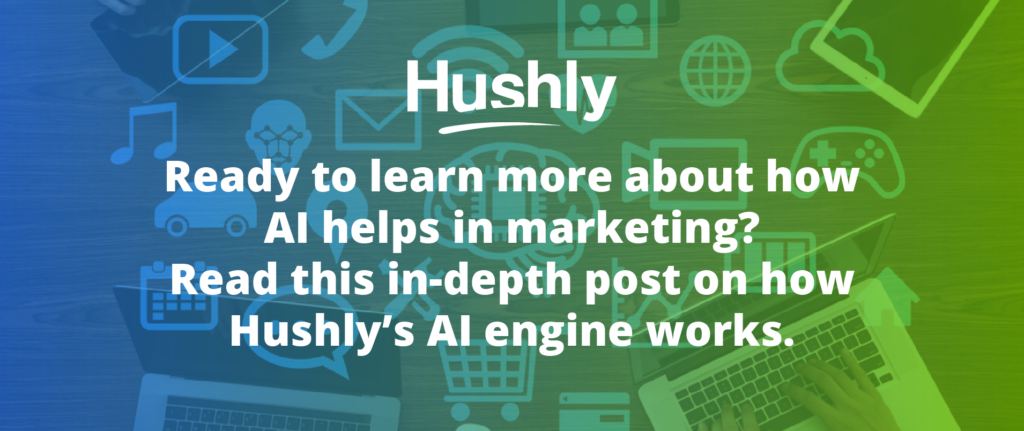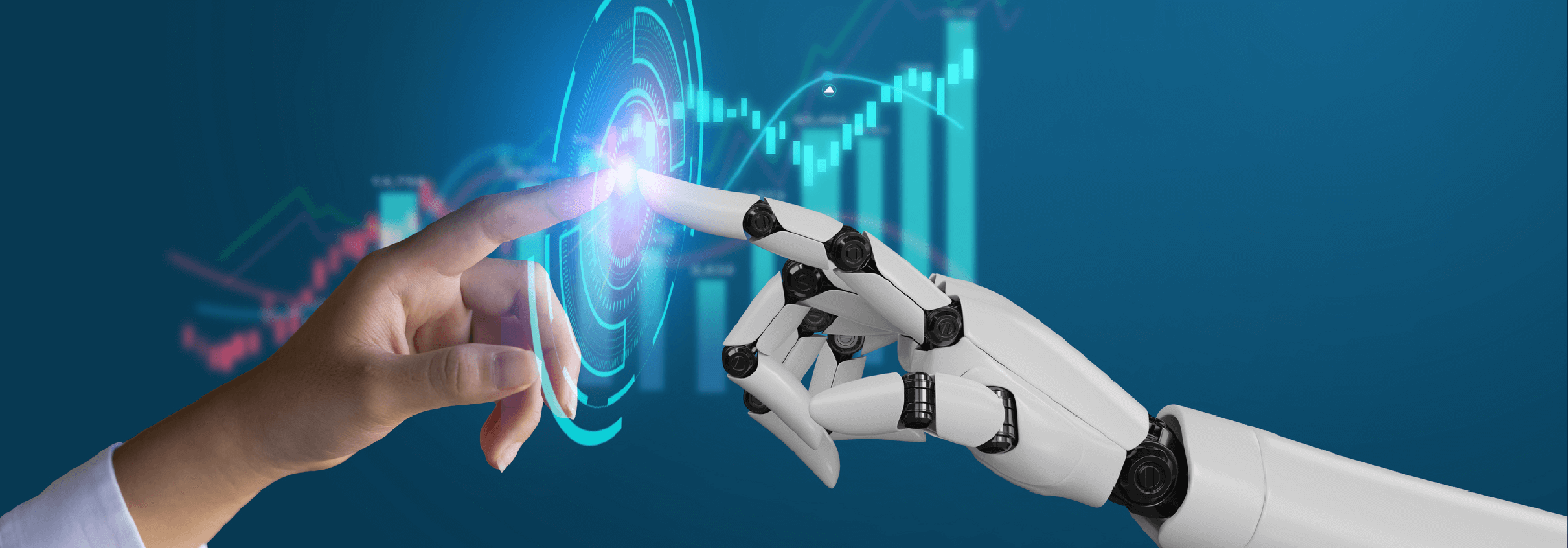Artificial intelligence is everywhere you look online – from Amazon and Etsy to Netflix and Facebook.
Your B2Bs know the technology exists to create hyper-personalized experiences because they use it every time they open an app. They expect a similar experience from your B2B website.
69% of customers expect connected experiences across multiple channels. Remember, your B2B buyers are consumers for the 16 hours they’re not at work every day.
AI isn’t optional anymore – and your competition is already taking full advantage of it. 84% of marketers report using AI in their strategies – a massive jump from just 29% in 2018.
Here’s how AI helps B2B marketing and how you can put it to work for you.
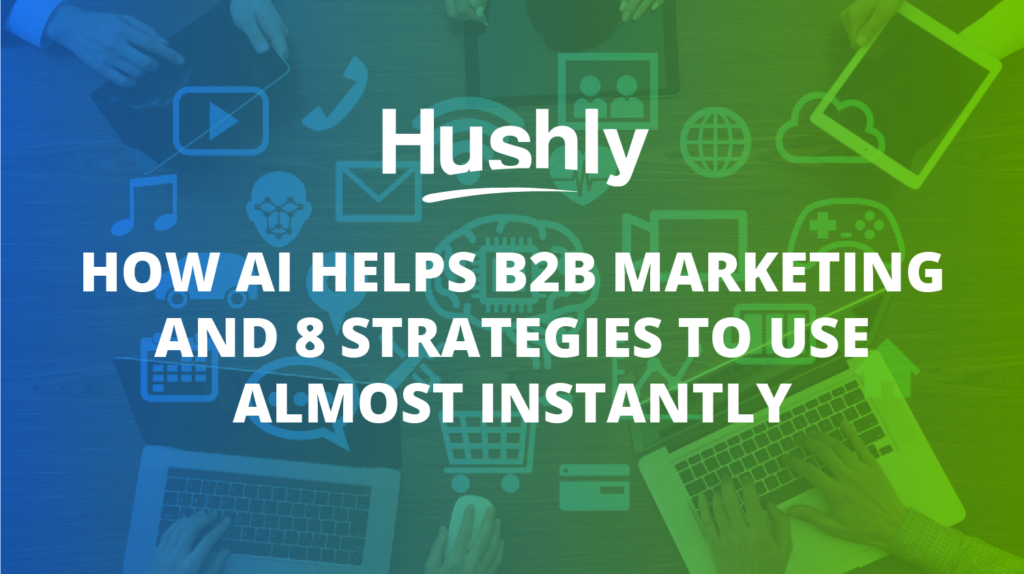
How AI Helps in B2B Marketing and Why It’s Not Optional Anymore
B2B marketers are already using AI across all types of processes to cleanse data, protect privacy, personalize experiences, draw insights from analytics, and much more. Here’s what the latest research from Salesforce says about its pervasiveness and how AI helps in marketing.
Solving Pain Points and Major Issues
Here’s the bottom line: Artificial intelligence is the ultimate solution for solving all your key pain points and challenges.
AI and machine learning are especially useful for engaging customers in real-time. When you add an AI engine to your website, every visitor gets a hyper-personalized experience. The AI engine uses a series of algorithms to study visitor behavior and compare it to the behavior of previous visitors.
Like Netflix or Amazon, the AI engine recommends pieces of content and uses machine learning to improve its recommendations over time.
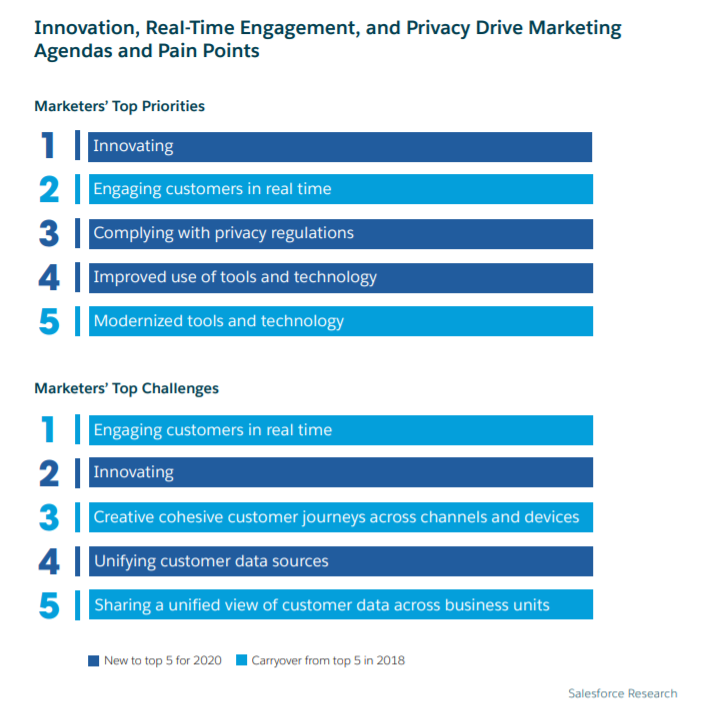
AI is also useful for ensuring your personalization strategy complies with privacy regulations. Unlike most types of personalization, AI uses anonymous browsing data. There’s no need to have data on a lead to deliver a personalized experience.
Not only that, but AI technology helps you create a united front across multiple channels. All the data you collect (even anonymously) you can use across other platforms to target users such as LinkedIn or PPC.
AI Helps in Marketing by Improving Performance
High-performing marketers have something in common: they use artificial intelligence technology. In fact, high performers are 1.3x more likely to use artificial intelligence than other marketers.
Although 84% of marketers already use AI, almost 50% of marketers of all levels are looking for new ways to incorporate AI into their marketing strategies. AI doesn’t remove the need for human marketers or sales teams – it just makes your job a thousand times easier and more efficient.
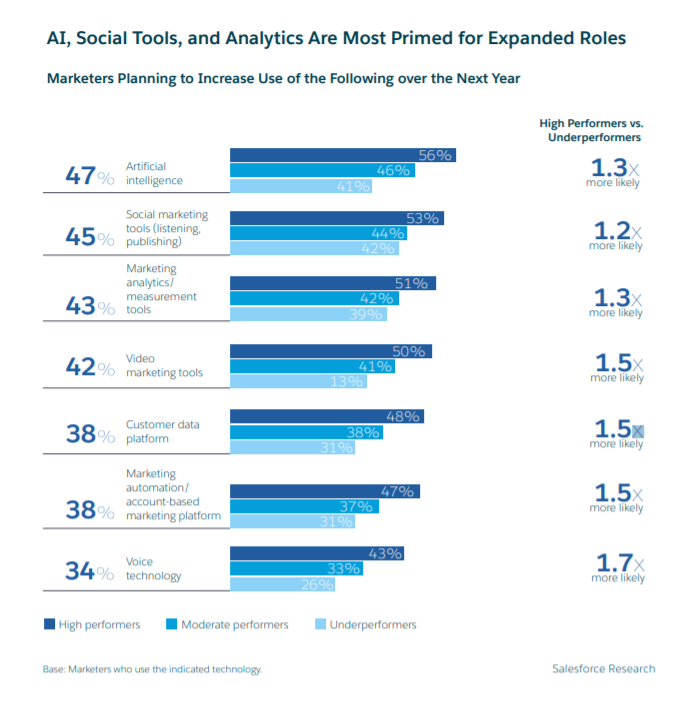
AI Helps Marketing by Improving Data Quality
Data quality is a massive problem with B2B marketers. It’s no surprise that 80% of organizations plan to ditch their data-driven personalization strategies by 2025.
Underperformers all have the same issues with data quality too. Indeed, data quality is the driving force in the rift between marketing performance.
Artificial intelligence uses human lead verification to make sure every piece of data that enters your system belongs to a genuine person and isn’t riddled with errors. Plus, AI can keep your data clean in real-time instead of forcing you to go back and cleanse data retroactively.
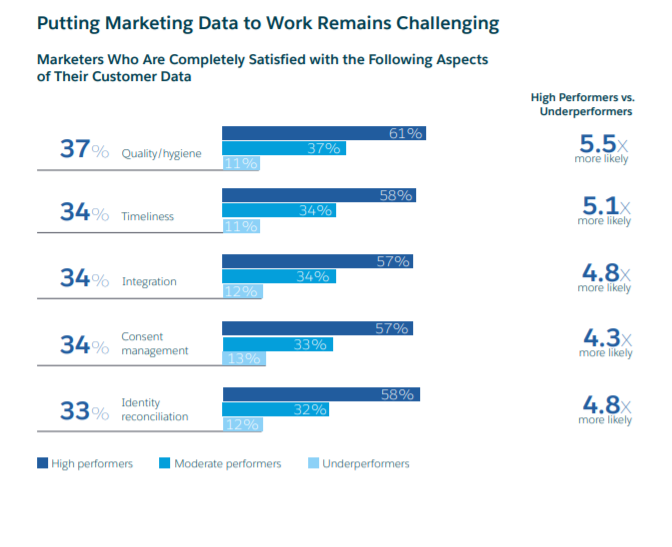
AI Helps Marketing by Segmenting Data
Artificial intelligence also helps you manage data. Data siloes are a major problem for marketers – especially B2B – and AI can break down the barriers. Instead, you can organize your data in one convenient location and use it to your advantage in real time.

Almost Everyone is Using AI to Help B2B Marketing
With 84% of marketers already using AI, statistics say your competition is already using AI technology for personalization and other tactics.
It’s no surprise that over 90% of marketers have ABM strategies in 2020. AI offers an accessible yet effective solution for small- and medium-sized businesses to implement account-based marketing strategies – something unheard of just ten years ago.
In fact, over 60% of companies running ABM strategies just started their campaigns within the past five years.
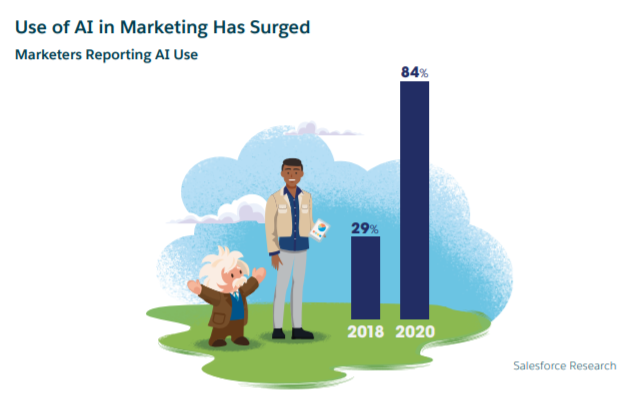
AI Helps in Marketing with Personalized Experiences and Nurturing Leads
When someone visits your website, there’s more than a 98% chance they aren’t ready to buy – and probably won’t be for a long time.
Plus, Gartner research shows the buyer’s journey isn’t linear anymore (if it ever was). Instead, it looks more like a silly string.
You can’t predict the exact path a lead will take during the journey, but you CAN use AI to personalize their experience and nurture them along the way.
Tools like self-nurturing landing pages use machine learning and AI to guide leads down the sales funnel by recommending relevant pieces of content at each stage like case studies or eBooks.
You can spend less time scoring leads to nurture and more time practicing social selling. AI does all the key lead nurturing for you while visitors are on your website – before they ever contact your sales team or leave their email address.
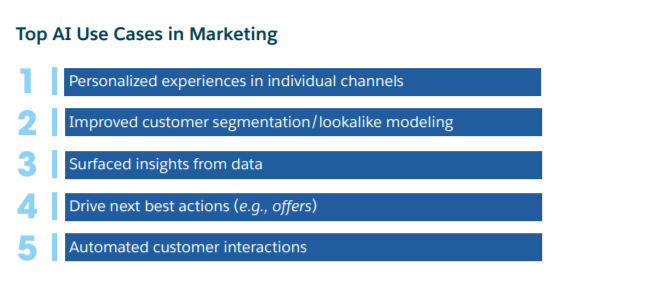
AI in Digital Marketing Helps You Keep Data Safe and Secure
Privacy is a huge concern among businesses and consumers alike. 81% of marketers say they’re more mindful of how they balance their personalization and data privacy practices.
We already saw a wave of consumer data protection laws with the GDPR. You can expect to see a similar wave with business data in the near future. Artificial intelligence fits into the solution because it anonymizes data. You don’t need many details to personalize.

8 Strategies to Use AI in Digital Marketing Almost Instantly
Most AI engines and programs are easy to use and implement. They’re not at all scary and extremely user-friendly. Some tools and strategies include:
- Hyper-personalizing your on-site experience via an adaptive content hub
- Lookalike audience modeling for targeting ads on LinkedIn or Facebook
- Responsive and helpful chatbots
- Automated triggered email marketing campaigns
- Improved lead scoring
- Sifting through metrics for insights
- Self-nurturing leads via landing pages
- Human lead verification and real-time data cleansing
You can put tools like Hushly to work almost instantly to hyper-personalize your website experience.
Ready to learn more about how AI helps in marketing? Read this in-depth post on how Hushly’s AI engine works.

